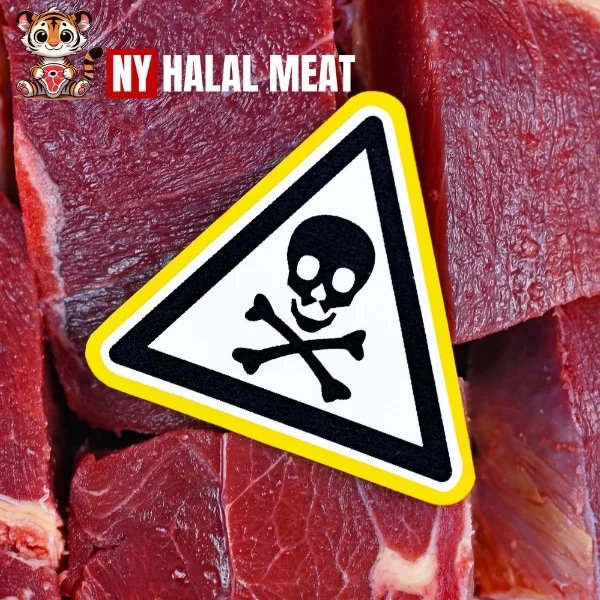Why Pork is Haram in Islam
The use of pork is considered as haram in Islam, meaning it is a sin to partake in its consumption. Most people who have even a slight understanding of Islamic rules are aware of it as one of the first things from the Quran that they get to know. It is deeply instilled in Quran, Hadith and the Islamic concept of cleanliness. To know why pork is considered as haram consumption one has to consider both religious and health elements. In this essay, we explore the reasons for this prohibition and the context behind its significance in Islamic dietary practices.
The Religious Basis for the Prohibition of Pork
The consumption of pork is not only recommended against by the Quran but it is also one of the key principles that the Islamic Dietary Law is based upon. The Holy book of Islam, the Quran, addresses this issue in several verses and clearly assigns pork as something which is prohibited and impure for Muslims.
Quranic References to Pork
The Quran includes several verses that contain the mention of the prohibition of pork, either directly or through implications. The verses include, but are not limited to the following:
- Surah Al-Baqarah (2:173): “He has only forbidden you dead meat, blood, the flesh of swine, and that on which has been invoked the name of other than Allah…”
- Surah Al-Ma’idah (5:3): “Prohibited to you (for food) are: dead meat, blood, the flesh of swine…”
- Surah Al-An’am (6:145): “…Say: ‘I do not find in that which has been revealed to me anything which a person who intends to eat should avoid eating, except if it is a corpse, or the blood that gushes out, or the flesh of swine, for that is filthy…'”
- Surah An-Nahl (16:115): “And He has only forbidden to you dead animals, blood, the flesh of swine, and that on which has been invoked the name of other than Allah…”
Pork’s prohibition is forthrightly stated in the Quran, without any room for exegeses of any sort or further categorization. Islam strictly prohibits any practice that can be deemed sacrilegious. It is not merely a religious tradition for the sake of culture but is a respect for the sanctity and respect of Islam.
What is The Meaning of Halal and Haram?
Every Muslim has a set of rules outlining whether they’re responsible for consuming food or beverage. These two terminologies cross the borders of food, thus defining behavioral customs, clothing choices, and even financial management. The significant factors stated all over the Quran and Hadith govern whether food is deemed halal or not. If it’s not deemed halal, then it is termed as haram.
Given its impure nature, the consumption of pork is termed haram. A combination of Islamic laws in the Quran, coupled with oral traditions, require that specific rituals be followed while consuming meat, for instance, calling the name of God while slaughtering. The consumption of pigs is therefore concrete proof why this is considered forbidden consumption for Muslim followers.
Associated Diseases Linked with Consuming Pigs
While many can concede the Islamic perspective of not consuming pork largely is of a religious character seeking to express faith, many scholars and health professionals argue that one can abstain from consuming pork and seek alternatives citing health concerns. Though lesser in priority than faith, these health-related concerns form the backbone for why such food is avoided.
Unsanitized Practices in Raising Pigs
It is common knowledge that pigs are raised in the dirtiest of places and are often scavengers. As a result, pork as meat is less clean when compared to other meats. It is a fact that throughout history, pigs have been associated with numerous diseases and infections, and undercooked or contaminated pork can lead to infection in humans. Modern-day farming has become less filthy; however, the fact that a pig is dirty still persists, making pork unsuitable for consumption.
Helminths Parasite Infection
Among several parasites, *Trichinella* worms are one of the very dangerous ones found in pork and can lead to illnesses such as trichinosis. There have been improvements in food safety that have allowed for a decline in cases of trichinosis or other parasitic infections, but cases are still present. Because of this very fact, pork is looked at as unfit for consumption both medically and in light of Islamic practices.
Islamic Dietary Dangers of Pork
Islam promotes a healthy and balanced diet, and consuming pork, minimally processed and high in fats, goes against these tenets. Pork consumption is linked to heart problems, obesity, chronic diseases, and more. These health concerns provide further justification for its prohibition in Islam.
Pork in Light of the Laws of Islam

Islamic dietary laws raise the issue of food consumption in Islam, which has both physical and spiritual implications for Muslims. These guidelines aim to protect the well-being of the body and soul, ensuring that everything consumed by a Muslim adheres to the principles of purity and respect for the divine.


